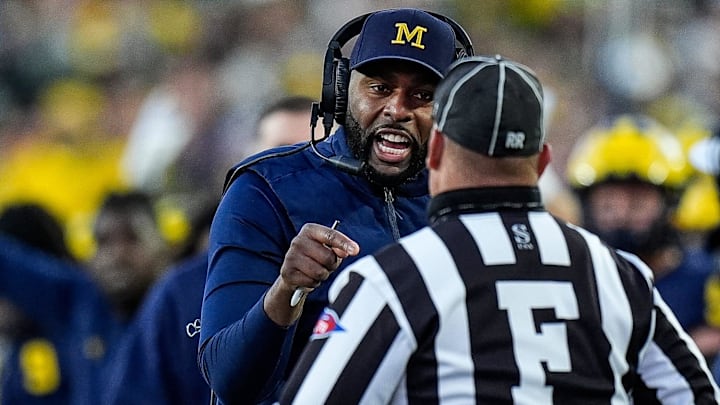The NCAA last season made it a point to emphasize to coaches that players faking injuries would not be tolerated. So much that they had to send out an official release that if it was suspected a player was faking an injury, coaches and universities would be fined, and teams would be charged with actual timeouts.
Faking injuries is not a new thing in college football, but it certainly seems to be something more prevalent in today's game. Coaches are telling their players to go down either to get a timeout late in the game when they don't have one, or to try and stop the opposing team's momentum. Either way, the NCAA has had enough and is making a change for next season.
The NCAA has approved a change regarding injury timeouts pic.twitter.com/V9UMHN2Dvb
— Matt Zenitz (@mzenitz) April 17, 2025
The NCAA is implementing a new rule in regards to players faking injuries
The rule change is something that some people probably still won't like, but with the sheer number of times players faked injuries last season, a change is probably needed. This change now involves whether the medical personnel are on the field or not.
The new rule will take away one of the team's three timeouts if a player goes down after the ball is spotted and the medical team comes out onto the field. If this occurs when a team does not have any timeouts, a 5-yard penalty for delay of game will be assessed on the drive.
The reason for the change when the ball is placed for the next play is that the rules committee is responsible for the change, noticing that most of the violations, or at least the most noticeable ones, seemed to happen the most when the ball was already placed for the next play.
This is not the only rule change coming to college football this next season. The NCAA is also trying to stop what happened in the Oregon-Ohio State game when the Ducks threw a 12th man onto the field that helped run four seconds off the clock and were only assessed a five-yard penalty. Now, if this were to occur, the offense would be given the option to reset the game clock.
The "T" arm signal, as famously seen in the Citrus Bowl between South Carolina and Illinois, on a kickoff, will now result in a dead-ball call.
All of these rule changes will be implemented in the coming college football season, so if Michigan doesn't want to get in trouble with faking injuries, it is suggested that if they are hurt, they simply should just stay down.
